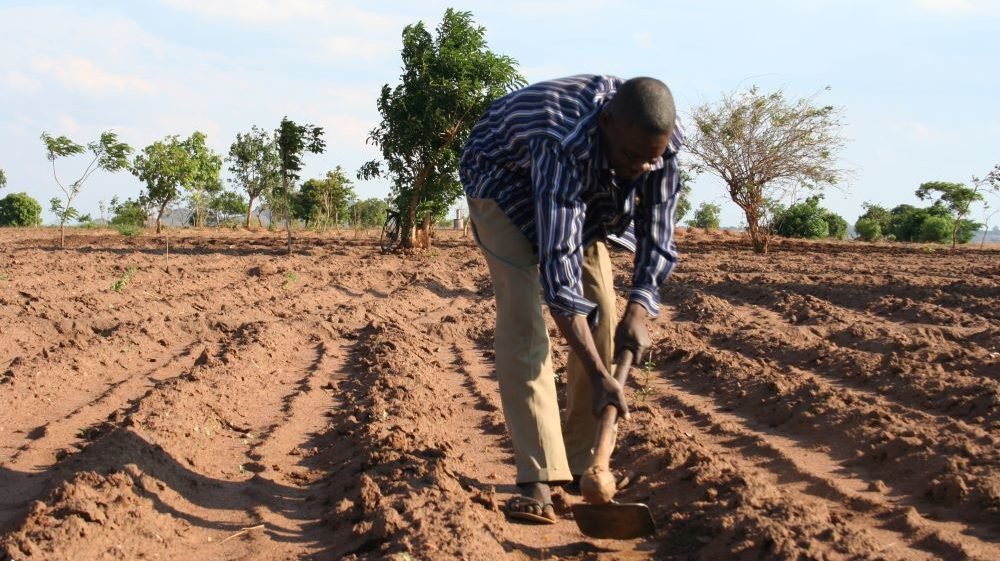By Dr Mel Oluoch, and Dr Stella Kabiri
The declining state of soil health in Africa has reached a critical tipping point, with 65% of agricultural land deemed degraded. Sub-Saharan Africa now holds the highest rate of land degradation worldwide, significantly limiting agricultural productivity and threatening food security. The rapid degradation is driven by population growth, urban demands for food, water and fuel, increased land use intensity, and excessive exploitation of resources, leaving many rural communities without access to necessary water. Shockingly, 40% of the world’s population lacking access to clean water resides in sub-Saharan Africa.
Ecosystem Services and Soil Health
Soil, the greatest terrestrial carbon sink, is essential for plant growth, food security, biodiversity conservation, rainfall retention, and environmental resilience. Degraded soil compromises these ecosystem services, leading to increased poverty, conflict, and instability. Improving soil health is key to addressing Africa’s water shortage and food security challenges.
Convening Regional Priorities
Held in Nairobi in May 2024, the Africa Fertilizer and Soil Health Summit brought together over 4,000 stakeholders, including government officials, regional economic blocs, private organizations, and civil society, to address critical issues concerning Africa’s soil health and fertilizer use. The summit reviewed progress since the 2006 Abuja Declaration and developed strategies to improve soil health and agricultural productivity across the continent.
Regenerative agriculture emerged as a major focus of the Summit, emphasizing the necessity of practices that restore and maintain soil health, enhance biodiversity, and improve water management.
Reversing land degradation and regaining soil health offers a high return rate on investment—up to $5 for every $1 invested—and offers hope for Africa. Regenerative agriculture can enhance this trend by boosting soil organic matter, strengthening soil structure, and increasing microbial activity.
Benefits of Regenerative Agriculture
Regenerative agriculture, a holistic approach of blending sustainable innovation with tradition, focuses on practices that can sequester carbon in the soil, restore soil health, increase biodiversity, and improve soil-water retention. Healthier soils lead to more consistent and higher yields over time, increasing farmers’ incomes and resilience against climate change.
Regenerative agriculture has the potential to strengthen rural communities by promoting culturally appropriate and knowledge-intensive practices. It encourages farmer-to-farmer knowledge exchange and revitalizes traditional agricultural practices in a modern context. Supporting smallholder farmers in adopting regenerative agriculture practices requires a multi-faceted approach addressing their specific needs and challenges.
The summit underscored the importance of a comprehensive approach to soil health that includes the use of both organic and inorganic fertilizers, improved land tenure for farmers, and increased investment in agricultural research and development.
In Malawi and Ethiopia, the effective use of fertilizers has led to notable improvements in agricultural output and the nutritional quality of produce. The need for flexible and targeted subsidies to support smallholder farmers has been emphasized, along with the importance of investing in local research capacity to develop sustainable farming practices.
Notably in Malawi, the Malawi Farmer-to-Farmer Agroecology (MAFFA) program has used participatory education and agroecology to achieve significant results. Over 6,000 rural families have seen dramatic improvements in maternal and child nutrition, food security, crop diversity, land management practices, and gender equality. Central to the success of this long-term program has been the use of iterative, participatory, transdisciplinary research methods, which employed multiple measures to assess and improve farming and social change among participating farmers.
Key Outcomes and the Way Forward
The summit concluded with the Nairobi Declaration, a 10-year plan to triple domestic fertilizer production by 2034, promote local raw materials, and strengthen sustainable agriculture policies. Key strategies include innovation in fertilizer technology, increased research investment, policies supporting regenerative agriculture, and improved education and training.
Crucial steps identified were enhancing market access, financial services, information systems, and tailored financial products for farmers. Climate-smart agriculture and supporting women and youth through education and financial services were also prioritized. Developing frameworks to track progress and inform policy adjustments is essential.
The Africa Fertilizer and Soil Health Summit has set the stage for agricultural transformation in Africa. Embracing regenerative agriculture can improve soil health, food security, climate resilience, and economic opportunities. Success requires concerted efforts from all stakeholders and a commitment to nurturing Africa’s soil. With the right support, Africa can achieve a sustainable and prosperous agricultural future.
References
- International Food Policy Research Institute. To improve Africa’s Soil Health and plant nutrition, empower women farmers.
- Relief Web. How Africa’s Water and Sanitation Shortfall can be solved?.2014.
- International Food Policy Research Institute. The case for investment in restoring degraded lands.2016
- African Union. African Leaders Adopt Bold Approaches to Enhance Soil Health: Africa Fertilizer and Soil Health Summit.
- HLPE report. Agroecological and other innovative approaches A report by The High-Level Panel of Experts on Food Security and Nutrition July 2019 for sustainable agriculture and food systems that enhance food security and nutrition.2019
END
The writers are Strategic Partnership Director, Sasakawa Africa Association, and Lead Regenerative Agriculture, Sasakawa Africa Association respectively

